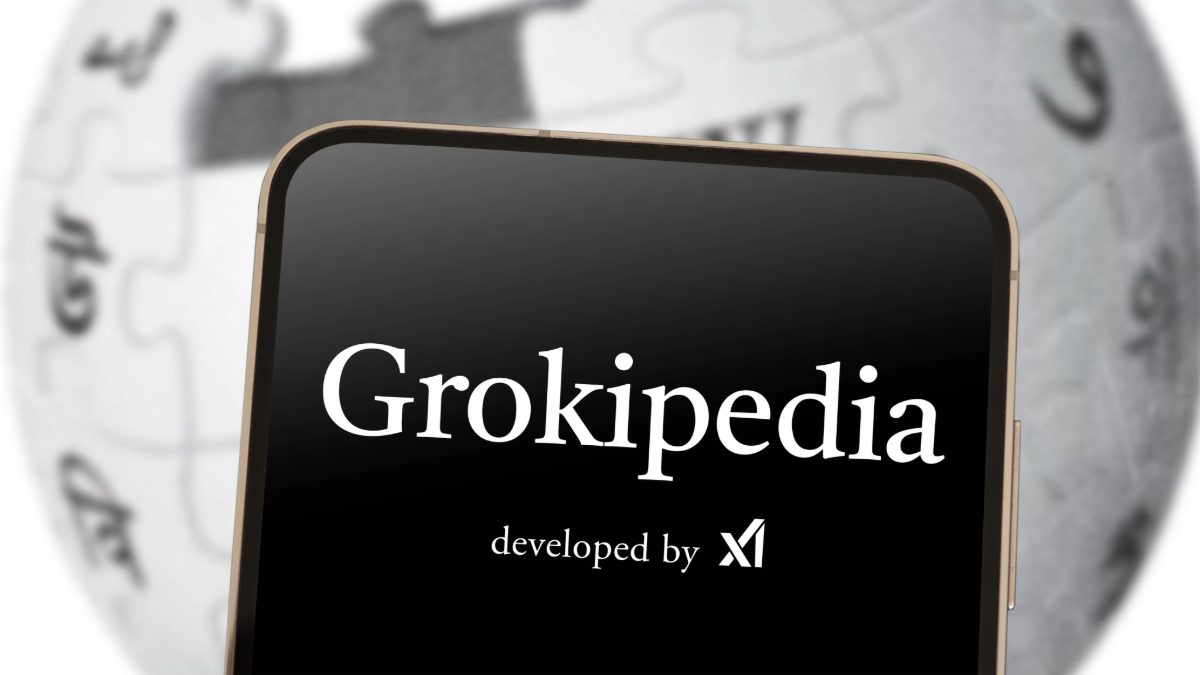Grokipedia Won't Destroy Knowledge, but it Might Divide Us More
Carolina Flores / Nov 13, 2025Last month, Elon Musk launched Grokipedia, his own artificial intelligence-generated alternative to Wikipedia he claims will "purge out the propaganda" in the latter. This followed three years of Musk attempting to discredit Wikipedia as so deeply biased as to have been "captured by the woke mind virus."
These are false accusations. Academic studies suggest that Wikipedia falls in the center or at most leans moderately left in the context of United States politics, with articles becoming more neutral over time as more volunteers edit them. And, though Wikipedia considers some right-wing media as unreliable sources, right-leaning publications with strong fact-checking practices are considered reliable and left-wing sources need to meet the same standard.
Musk’s ambition appears to be to replace Wikipedia with a general-knowledge source that is favorable to his far-right views. This despite the fact that much of Grokipedia is actually copied from Wikipedia. Still, there is one key difference: Grokipedia articles cannot be edited by users, removing one of Wikipedia’s central mechanisms for detecting mistakes and converging to the truth.
What has garnered the most coverage since Grokipedia’s launch, however, are the far-right talking points it presents as fact. Those include claims that pornography worsened the AIDS epidemic and that social media may be fueling a rise in transgender people, that the white genocide conspiracy theory is actually occurring and other inaccuracies on politicized topics such as vaccines and autism, COVID-19, race and intelligence and climate change.
These outrage-baiting claims have predictably focused mainstream attention on Grokipedia and stoked fear-mongering about its effects. But there is no need to panic — yet. This isn't the first time the far-right has sought to create its own alternative encyclopedia.
In 2006, conservative activist Andrew Schafly created Conservapedia, which was explicitly written from an American conservative and fundamentalist Christian point of view and was similarly motivated by Wikipedia's perceived liberal bias.
Needless to say, Conservapedia utterly failed to challenge Wikipedia's claim to be the internet's central and most trusted repository of general knowledge.
Grokipedia might well go the way of Conservapedia, and mainstream media outlets should be wary of playing into Musk's game by inflating its importance right away.
Recent studies of how misinformation spreads online and central findings in cognitive science suggest that Grokipedia is unlikely to mislead the general public.
As political scientist Brendan Nyhan and his team warned in an article published last year in the prestigious journal Nature, media reporting and some research have tended to overstate exposure to potentially harmful content online. Despite public perception otherwise, once we take into account television, only about 0.1% of the average US citizen’s media diet comes from fake news websites. And even this number can be misleading, as the evidence suggests that exposure to misinformation and other harmful content online is concentrated among fringe users who deliberately seek out such content. There is little reason to think Grokipedia will be an exception to these statistics.
Further, these findings square with what we know from cognitive science about how people seek information and revise their beliefs. People are not gullible, passive information consumers who believe everything that comes their way. We are equipped with a range of cognitive mechanisms for epistemic vigilance (that is, for checking whether sources are reliable, claims are likely to be true, etc.). Instead of falling for anything, we use our prior beliefs about the world to decide which sources to trust and which claims to take seriously.
As a result, users who are not already Musk-pilled or who actively dislike Musk and his political stance, are likely to distrust Grokipedia and not rely on it. To the contrary, a user who has already bought into far-right views might be actively interested in finding additional fodder for their views and ways of rationalizing them. Such a user might come to rely on Grokipedia extensively — but this is an effect of their radicalization, not its cause.
What should worry us about Grokipedia, then, is not that masses of people will come to believe right-wing conspiracy theories. Instead, the problem is that a (growing) fringe of far-right supporters will find new rationalizations for their views, becoming more emboldened and even harder to reach or persuade. It might become increasingly harder to find a common ground of shared facts as a basis for a political conversation with people in this group.
This raises a larger worry. Though this group is not the majority of the population, it currently has substantial political power — after all, it is aligned with the president of the US. There is a risk that this power will be harnessed to demand that Musk-flavored "alternative facts" get taken just as seriously in official institutions and mainstream media, or even that they supplant factual truth.
This is undoubtedly what Musk would like to happen. But again, it is far from a done deal. Grokipedia might well go the way of Conservapedia. Whether it does depends on how much universities, journalism and other knowledge institutions resist this attempted take-over and manage to continue to hold on to our best practices of knowledge-production. As so often, the deeper issue lies with the background balance of power; with who controls what Nancy Fraser memorably called “the means of interpretation and communication.”
Besides continuing to resist a take-over of knowledge institutions by bad actors, what can we do when it comes to addressing the threat of Grokipedia specifically? Here, it is crucial that researchers, policymakers and journalists should take seriously what we have learned from the study of misinformation in recent years.
First, we must avoid falling for fear-mongering about Grokipedia's impact. Making it appear monstrously powerful only helps Musk's agenda of ruling over the circulation of knowledge. Instead, we should carefully study and report on who exactly is using Grokipedia, always remaining mindful of the scale of reliance on this source in the general population. In doing so, we should continuously strive to highlight good knowledge-generating practices that are happening at a large scale, such as the hundreds of thousands of people who collaboratively edit Wikipedia, and strive to build the social power of these practices.
Second, policymakers should make it a priority to focus on reinforcing trust in mainstream knowledge-producing institutions that involve peer review, such as Wikipedia. These interventions should be aimed at the general population, where they are more likely to gain traction, not at those who are already radicalized. Such trust-building can function as inoculation against Musk's attempts to generate suspicion of these mainstream institutions for those who have not yet bought into the far right's distrust.
Third, Grokipedia is likely to primarily attract users who are seeking content that reinforces their existing worldviews. Researchers and policymakers need to continue to think about how to address the background prejudices that lead these users to actively seek far-right content. Without addressing such root causes, this group will continue to demand the kinds of false claims propagated on Grokipedia, and there will continue to be incentives for unscrupulous actors to produce such content. As such, alternative sources like Grokipedia will keep reemerging, especially as large language models (LLMs) make it easier to produce them at a large scale.
Authors

